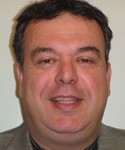Alzheimer’s sufferers were once vital men and women, leading active, interesting lives. Left in the wake of a disease, which robs them of personality, memory and familiar behaviors, they become pale shadows of their former selves. Frustrated and confused over increasing loss of old abilities, they suffer a loss of self-esteem.
Care members and staff can build self-esteem in Alzheimer’s sufferers by building on their past experiences and recognizing those things that were important to them.
Listed are ideas for activities and projects designed to raise the self-esteem of residents in facilities:
•Display case featuring momentous, pictures, brief bibliographic materials about the life and accomplishments of the person featured. Each month, a different person is recognized. The person may be chosen by criteria such as birthdate, occupation or hometown. Family and staff often benefit, too, when reminded or told about the person’s past life. It has the potential of generating a new respect and appreciation.
•Monthly posters listing all persons sharing a birth month.
•Recorded memories — One family reported treasuring an audiotape of a number of sessions between the activity director and their grandparent.
The tape was of reminiscence sessions with a woman who had lived all her life in the town and who, despite memory loss, could share little known or lost facts about early life in the town. The tape, having special value, became not only a family treasure but also part of the library’s holdings.
•Special tributes. Families often find unique ways to preserve and recognize those things that were important and meaningful in their relationship with the patient. One daughter, an artist, designed and painted a beautiful plaque which hangs at the head of her mother’s bed extolling all the wonderful things her mother did as a young woman when she was healthy and alive with energy and a will to be involved. The plaque asks her caregivers to see her as she is but also to remember the person she was — loving, giving and very important to those who knew and loved her.
•Family albums can be especially useful in prompting old, pleasurable memories in the patient. Families may also benefit from being reminded of important past connections. Information shared with staff helps them know the person better. Staff, for example, was very surprised to learn that a resident who was very impaired had been a pilot in the early 1900s. This was certainly a singular accomplishment for a woman. An aide reported having a fascination and a new respect for the patient upon learning this bit of personal history.
•Other projects and activities can be varied depending on objective. Many Alzheimer’s sufferers retain to some degree special talents. One resident, for example, loved to recite Shakespeare. Find ways of recognizing this while being careful not to remind or emphasize the person’s present deficits or reduced capacity. Involve families. Let them help compile needed information to personalize your project. Activities can range from recording for future generations old family recipes to organizing special artifacts from the patient’s career, civic involvement, military service, or hobby.
•Celebrate the Mundane. “Things they have done, places they have been capture the essence of a person’s life. For example, one of the authors participated in recording an oral history of elderly blue-collar workers in the tobacco industry in the early 1900s. There was great pride in their participation in this project.
•Another project might involve shared characteristics between staff and residents, i.e. schools attended, hometown, birthdays.
Most important is the day-to-day practice of showing unconditional respect, affection and regard for each patient as a valued and special member of the nursing home community.
Micha Shalev MHA CDP CDCM CADDCT is the owner of Dodge Park Rest Home and The Adult Day Club at Dodge Park located at 101 Randolph Road in Worcester. He is a graduate of the National Council of Certified Dementia Practitioners program, and well-known speaker covering Alzheimer’s and Dementia training topics. He can be reached at 508-853-8180 or by e-mail at m.shalev@dodgepark.com or view more information online at www.dodgepark.com













